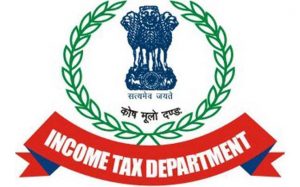Why does Government increase surcharge and not basic tax slab rate? Probable Reason – Pre budget Facts

As Budget 2021 is round the corner, the major part of budget is Direct Taxes and in direct tax one major portion is Income tax wherein majorly there is Income tax, cess, and surcharge.
In the last few budgets we have been that government is increasing surcharge and saying that they want to charge more tax from high income earning people whereas there is no increase in Income tax slab rate.
This fact gives rise to a question that if government wishes to increase collection of tax from high income earning people they could even increase income tax slab rate then what is the reason for increasing surcharge rate.
In the current scenario there are 4 slab rates for surcharge in case of individuals:
If income between Rs. 50 lakh to Rs. 1 crore: Surcharge 10%.
If income between Rs. 1 crore to Rs. 2 crore: Surcharge 15%.
If income between Rs. 2 crore to Rs. 5 crore: Surcharge 25%.
If income is above Rs. 5 crore: Surcharge 37%.
Surcharge is also levied on companies.
As we have seen government has increased surcharge and not income tax slab and probable reason for same could be as under:
A perusal of the provisions pertaining to imposition and distribution of tax proceeds reveals that the Indian Constitution sets up a quasi-federal tax governance structure.
The Seventh Schedule of the Constitution enumerates the fields over which the Union Government and the State Government enjoy legislative competence. Under the Seventh Schedule, the Union Government has the power to levy, collect and distribute a number of high yielding direct and indirect taxes.
These include income tax (other than agricultural income), customs and export duties, excise duties on petrol, natural gas, tax on aviation turbine fuel, tax on tobacco and tobacco products, corporation tax, inter-state sales tax. The Union government enjoying power over a relatively greater share of the tax base as compared to State Governments is primarily due to the Provincial Governments preferring to entrust a greater portion of tax administration to the Union Government.
Thus, currently, revenues collected from certain sources such as income tax are necessarily part of the divisible pool while cesses and surcharges can be kept outside the divisible pool.
Hence even though the power to collect Income tax is with Central government they have to distribute it with other states.
As far as surcharge is concerned, it is discussed under Article 270 and 271 of the Constitution. A surcharge is stated to be “an increase” in any of the duties and taxes referred to in Articles 269 and 270. In simple words, a surcharge is a tax on tax. From a reading of the relevant provisions of the Constitution, there seem to be four major features of a surcharge:
First, Parliament can impose a surcharge for ‘the purposes of the Union’. The exact import of this phrase is not clear, but it is logical that the Union can impose a surcharge only on its tax base.
Second, pursuant to Constitution (One Hundred and First Amendment) Act, 2016, a surcharge cannot ordinarily be imposed over and above the GST.
Third, unlike a cess, in the case of a surcharge, there is no need to stipulate the purpose at the time of levy and it is the discretion of the Union to utilise the proceeds of the surcharges for whichever purpose it deems fit.
Fourth, owing to an exception under Article 270, the proceeds from surcharges need not be shared with State Governments. Even prior to the carve-out in Article 270, the concept of surcharge and the language for ‘purposes of the Union’ in Article 271 was interpreted to mean that surcharge proceeds are separate from income tax proceeds for the purposes of distribution.
Thus, based on the above facts it can be seen that on one hand central government has to share proceeds of income tax with state government and on other hand proceeds of surcharge is not required to be shared with state government and central government can use the proceeds for whichever purpose it wants.
These two can be the main reasons as to why central government is increasing surcharge rate rather than increasing basic slab rate.
To read more about tax, cess and surcharge CLICK HERE.
To read more such interesting articles and stay updated with Budget updates subscribe to our website.